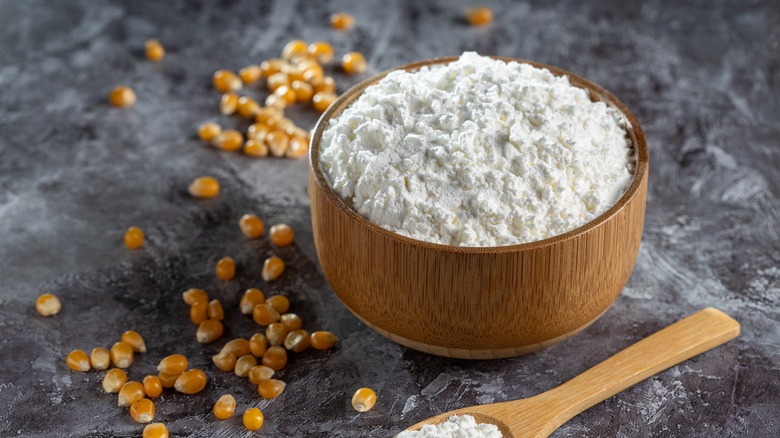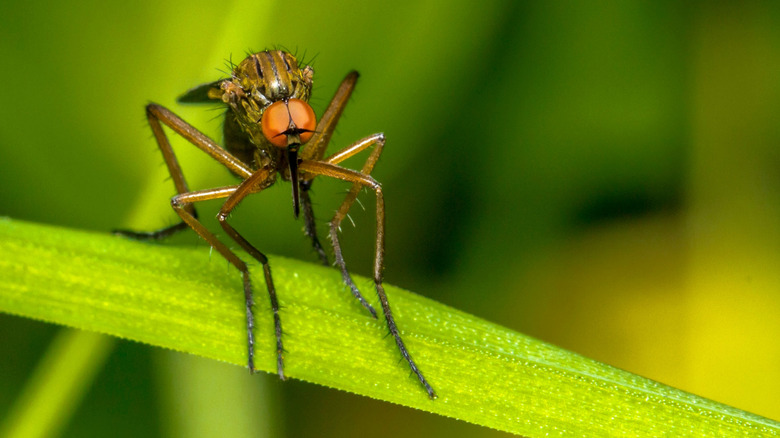Why Some Gardeners Are Adding Cornstarch To Their Pest Sprays. Should You?
Many people know cornstarch as a pantry staple used for thickening soups, sauces, etc. It's a simple, inexpensive ingredient that doesn't change either the flavor or the color of food. But did you know that this seemingly basic product can be used in a host of different ways to transform your garden? One common use is adding cornstarch to DIY pest sprays. With more people growing concerned about whether commercial bug sprays are safe to keep pests off plants, it is becoming a popular alternative. The theory is that the cornstarch works in the exact same way it does when added to food: it thickens the mixture. The result would be that the spray becomes more effective at sticking to plant surfaces. The thicker consistency would also keep the mixture on the plant for a longer period, making it unappealing to bugs.
While it sounds like a great idea, should you do it? Would cornstarch be a valuable addition to pest control or just another internet hack that doesn't work? There is plenty of information available that says it is effective, and it would not do harm when used in moderation. So, if you want to try, it would be safe to do so. However, you might wonder if there is scientific proof that this DIY works. As it turns out, researchers from the US Department of Agriculture's Agricultural Research Service (ARS) have been studying this theory and have developed a cornstarch-based product that has pest control listed among its numerous properties. Unfortunately, it's not quite as simple as adding a little cornstarch to your spray bottle.
How cornstarch could fight garden bugs
ARS scientists do not use cornstarch as you would in the kitchen. What they've done is create an amylose inclusion complex (AIC) from cornstarch. This can be added to products like essential oils, spices, and other plant material. So far, it has been proven effective in killing mosquito larvae while being deemed safe for the environment. The hope is that further developments of this versatile additive would be able to tackle termites and the fungi that cause wood rot.
While cornstarch has components that can help ward off some bugs in the garden, the store-bought product may not have much impact acting as an insecticide. As every gardener knows, there is no single solution to fighting insects that invade your yard. You could use insecticide, but there are a number of ways to repel bugs naturally. You just have to find the method that works best for you and your garden. Cornstarch may be worth trying as a thickening agent for your DIY pest spray. If you decide to make your own spray, start by adding in a small amount of cornstarch as a tester. Then you can build up gradually and see if you get the desired result. If it does not work for you, at least there will be no negative impacts on the surrounding environment.

